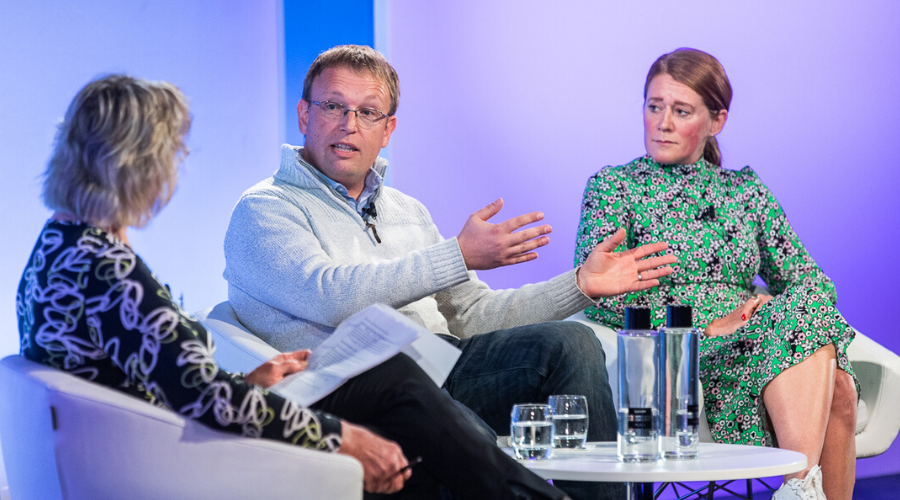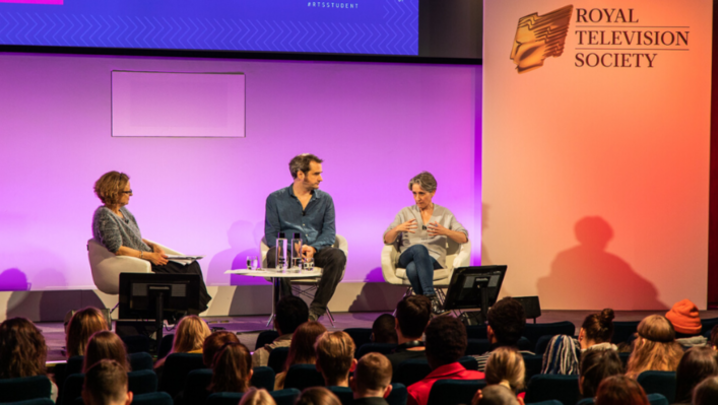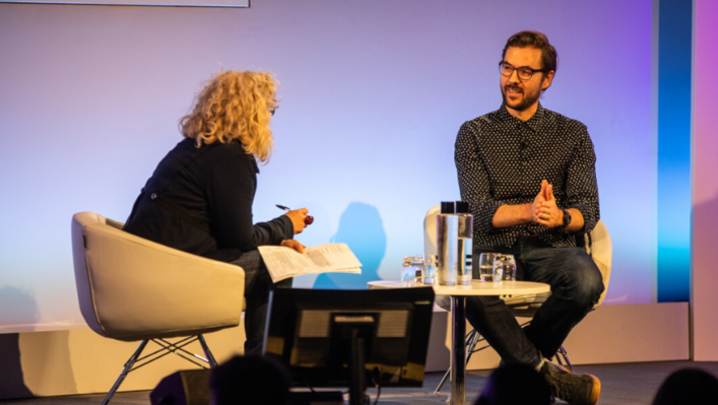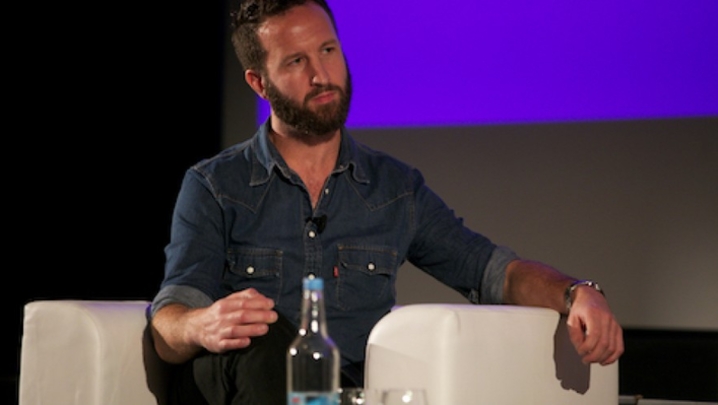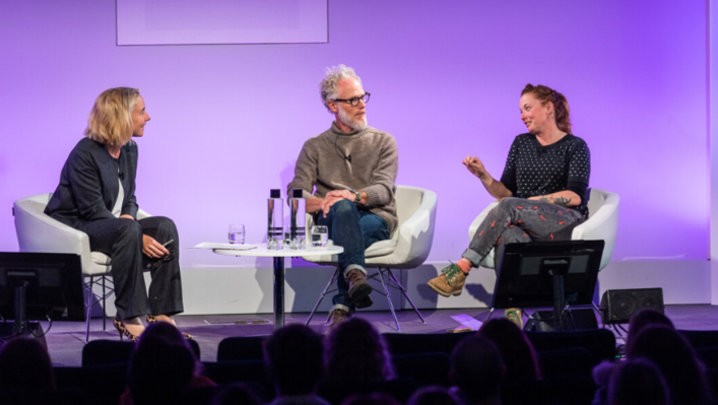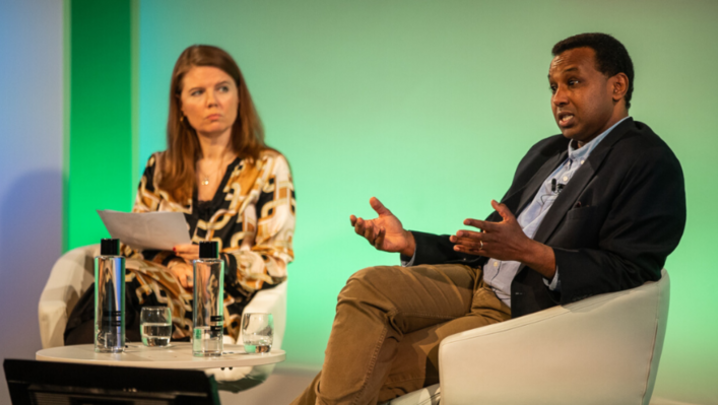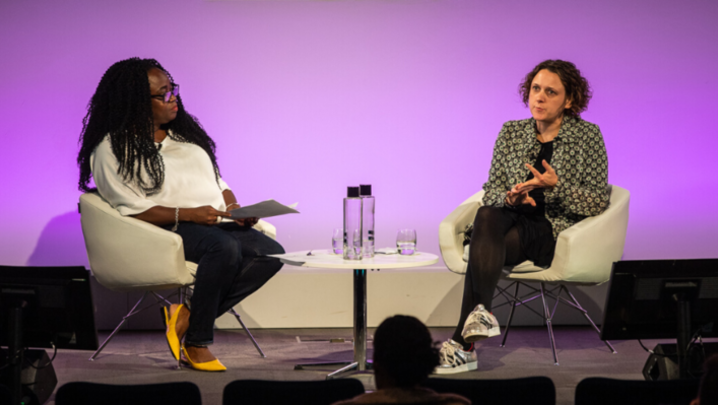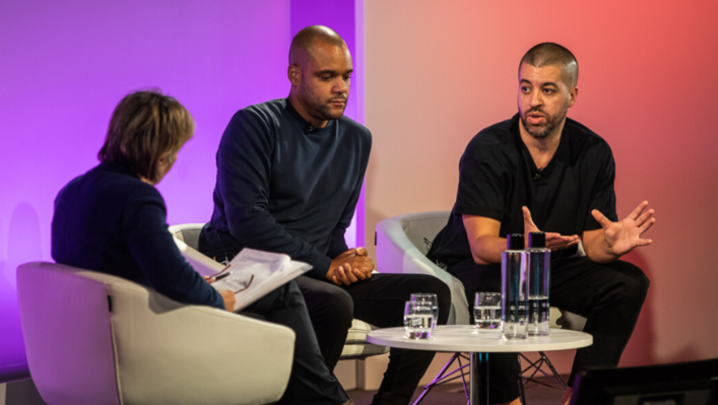Sound recordist and location sound supervisor Matt Bacon and Kate Davis, head of sound at London post-production house Directors Cut Films, discussed their trade with former factual programme-maker Helen Scott at the RTS Student Masterclasses.
Davis received a Bafta nomination this year for her work on the BBC Four documentary Amy Winehouse: Back to Black. Bacon specialises in formatted and entertainment series such as Channel 5 reality show The Bachelor and the BBC’s Masterchef.
Getting started: “I did a degree in music… and had aspirations of working at Abbey Road and recording bands and orchestras… I’d set the bar rather high,” recalled Bacon. “I bought a copy of Broadcast magazine and there was a tiny advert wanting a camera and sound assistant at Shepperton Studios… I got the job… I was seconded to BBC Pebble Mill and that’s where I learnt my trade.”
“No way” said Davis, who trained at the same place. “I got a job as a runner, through a family friend, in post-production straight after my A levels… I became a film assistant at Pebble Mill and there were hours in the day when we didn’t have jobs to do, so we could sit and observe the editors – it’s an amazing skill but it didn’t inspire me. I felt this calling from the other end of the corridor [from] the dubbing studio… I found it inspiring and magical… and I spent six years dialogue editing on big dramas like Dalziel and Pascoe. When [Birmingham] stopped making drama, I moved over to the factual side and started mixing [sound].”
“If we’ve got good sound, we’ll use it… but a lot of the time we can make it better if we add something. Obviously, it depends on the budget how much time we have to accentuate the soundtrack,” said Davis.
Poor sound: “You can repair it in the edit, but it will take you longer and cost you more,” said Bacon.
“Dialogue is the most important thing in any soundtrack,” said Davis. “If you can’t hear the dialogue, then you might as well not bother [watching].”
“A lot of the time the recordist isn’t to blame – a lot of artists do mumble … Part of our role is to say, ‘We can’t hear them; I’d like another [take]. Often you are over-ruled,” added Bacon.
Smooth sound: “It’s not just about making any clip as clean as possible, it’s about smoothing it into all the elements [of the programme], so the sound washes over your head. Sound is so subliminal – I don’t want anybody to ever think about what I’ve done because then [it means] I’ve not done my job,” said Davis.
Location sound: “We strive to do as best we can; sometimes… we have to compromise… On a daytime programme, you’re going to be less concerned about it than in a period drama, where you cannot have a plane flying [overhead] – they didn’t exist. At that point you have to stand your ground… and do [the shot] again,” said Bacon.
Foley artists record sound effects: “On any big drama, they will have a couple of people standing in a big room, with every possible floor surface, like concrete, grass and pebbles, [walking] in sync to the pictures. They [also] do things like picking up glasses, and putting them down. They watch a big screen with the action on it and record the sound [to it],” said Davis.
“It is a team game and we can’t do our jobs [on our own]. Every department has had a helping hand in the production you see at the end,” said Bacon. “Part of the role is knowing how the equipment works… but a vey important element is… getting on with people. If people like you, you will be hired on the next job.”
“Technology in the last 20 years has changed dramatically. But while the equipment is getting smaller, cheaper, lighter and more complex, technology will only take you so far – your ears will tell you everything… Trust your ears,” said Bacon.
“Watch the scariest film you know with the sound off, because you will then realise how much sound contributes to that footage,” said Bacon.
Advice for new starters: “Get a job as a runner in a post-production house; get Pro Tools, the industry-standard software, and become proficient at that… Stand out from the other runners and the opportunities will come to you,” said Davis.


